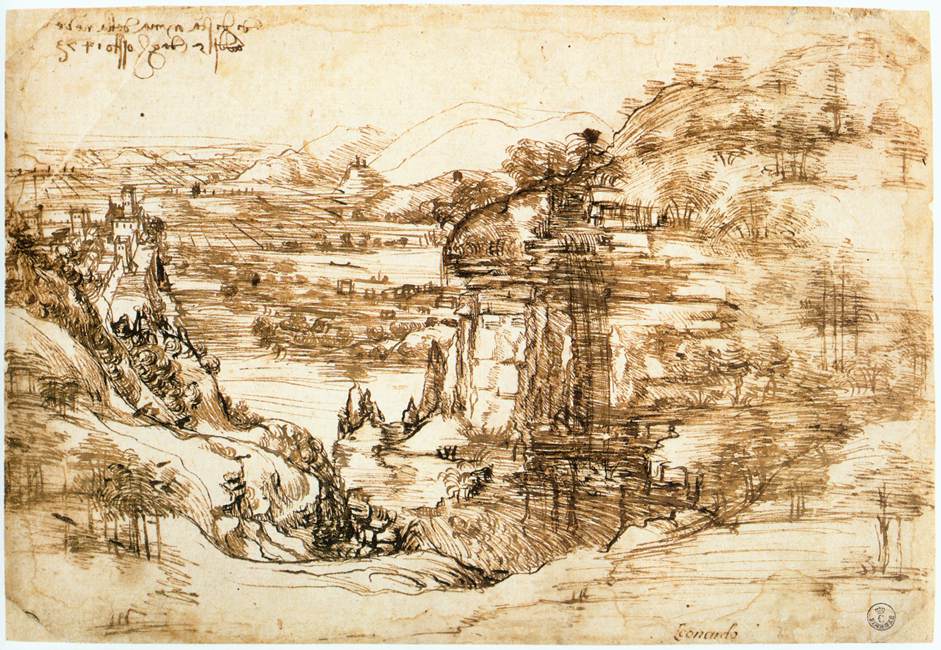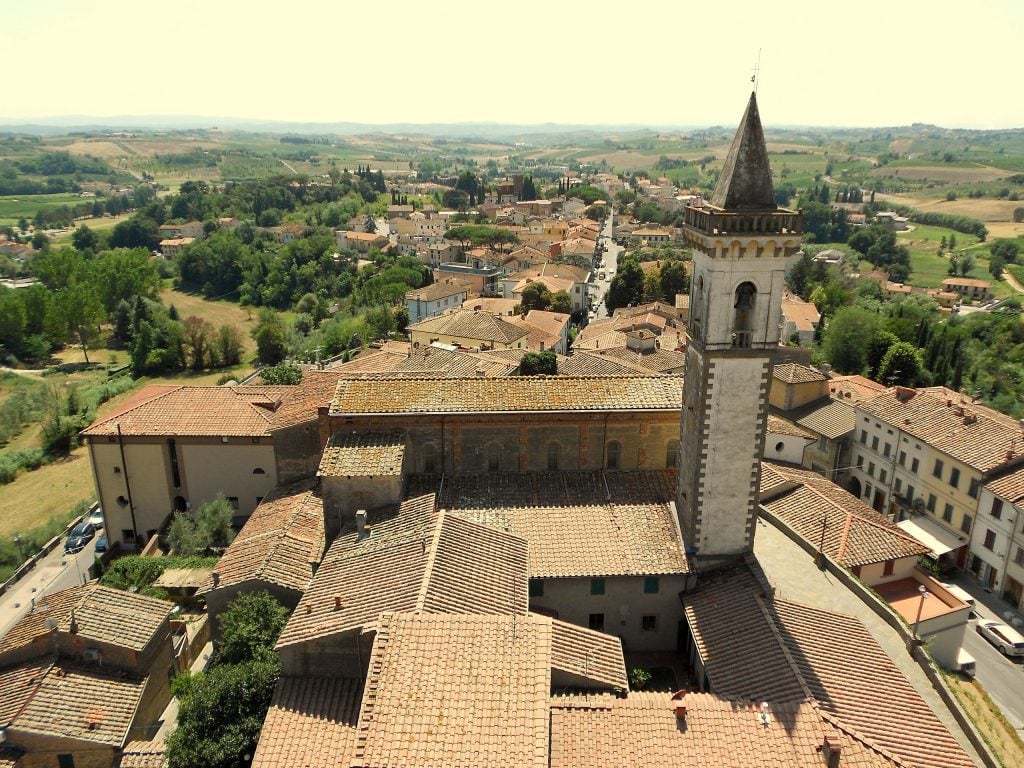Art & Exhibitions
Leonardo’s Earliest-Known Drawing to Return to His Hometown
It marks the 500th anniversary of his death.

It marks the 500th anniversary of his death.

Henri Neuendorf

To mark the 500th anniversary of Leonardo da Vinci’s death, the artist’s earliest-known drawing will return to his hometown of Vinci in Tuscany, Italy, in 2019. Da Vinci died on May 2, 1519, at the age of 67.
On Thursday, the Uffizi Gallery in Florence confirmed that the artwork, titled Landscape Drawing for Santa Maria Della Nave, will go on loan to the Museo Leonardiano for just five weeks, starting August 5, 2019.
The drawing, created when Leonardo was just 21, is dated August 5, 1473, and features a landscape of the Arno river valley and Montelupo Castle. The pen, ink, and pencil sketch is characterized by a fluent technical approach that was ahead of its time. The drawing remains the earliest surviving known work by da Vinci.
According to the Associated Press, the work may only be exhibited for a maximum of 90 days before it has to be returned to storage for four years, due to its age and fragility. Conservators have imposed the restriction in order to regulate the ultra-rare artwork’s exposure to direct light to help preserve it for future generations to enjoy.

The town of Vinci, in Tuscany, Italy. Photo by Glorious 93, Creative Commons Attribution-Share Alike 4.0 International license.
As a result, showings of the drawing have to be planned and scheduled several years in advance so to allow the artwork sufficient time to remain out of direct light between exhibitions.
The 543-year-old drawing was last exhibited in Milan in 2015 at the Expo world’s fair.
Leonardo is widely regarded as one of the most brilliant geniuses in history. His expertise spanned several areas including painting, sculpture, architecture, engineering, anatomy, and literature.
His notable artworks include the Mona Lisa (circa 1503–06), The Last Supper (1495–98), The Vitruvian Man (circa 1490), and Lady with an Ermine (1489–90).